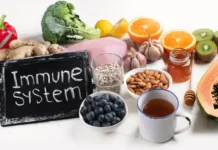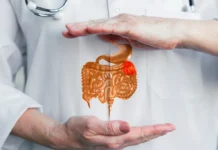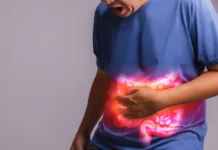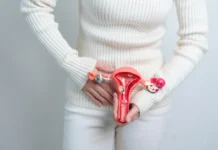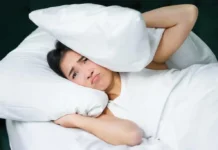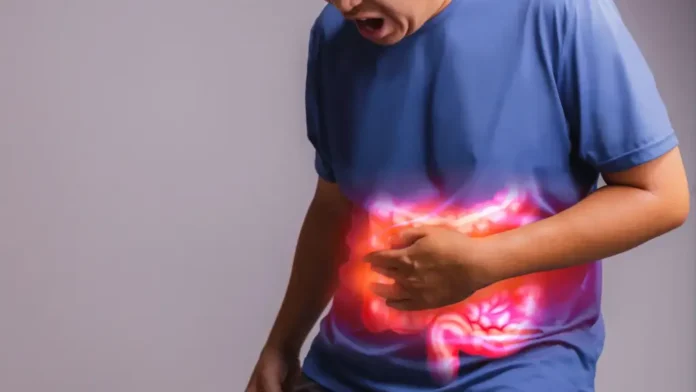What are the intestinal challenges?
Intestinal challenges, medically termed constipation, transpire when the evacuation of the substantial intestine encounters complications.
This can manifest in diverse ways, such as the lethargic movement of fecal matter through the colon. When the process of digestion proceeds at a sluggish pace, more moisture is assimilated from nourishment, solidifying the feces and rendering passage arduous.
Having fewer than three bowel movements per week may signify constipation.
What Elicits Constipation?
Intestinal challenges can occasionally stem from hindrances in the substantial intestine, necessitating immediate medical intervention.
Other contributors to intestinal challenges encompass:
- Inadequate hydration
- Imbalanced diet
- Deficiency of fiber in the diet
- Absence of physical activity or a sedentary lifestyle
- Inactivity or inadequate exercise
- Irritable bowel syndrome (IBS)
- Advancing age (senior age)
- Alterations in routines, such as travel
- Excessive use of laxatives
- Disregarding the urge to utilize the restroom
Colorectal predicaments, including:
- Malignant growths
- Protrusions
- Fibrous tissue
- Diverticular disease
- Abnormal narrowing of the colon or rectum
- Chronic inflammation of the digestive tract
Medications prompting constipation
A frequent inducer of intestinal challenges is frequently a byproduct of other medications, including:
- Opioid-based analgesics
- Antidepressants
- Certain anticonvulsants
- Blood pressure-lowering drugs
- Antacids with aluminium content
- Antacids containing calcium
- Diuretics & Iron supplements
Manifestations of Constipation
A principal indicator of intestinal challenges is the struggle to evacuate. While constipation impacts individuals of all age brackets and frequently resolves autonomously, it is imperative to be attentive to the symptoms. Persistent, unattended constipation can lead to haemorrhoids, rectal prolapse, fever, and enduring health complications.
Some of the primary symptoms associated with intestinal challenges encompass:
- Struggle during defecation
- Exertion during restroom usage
- Excretion of a reduced amount of fecal matter than usual
- Stools characterized as lumpy, dry, or rigid
- Abdominal discomfort and spasms
- Sensation of bloating and queasiness
- Diminished appetite
When to Consult a Physician for Challenges in Constipation
Numerous indications of difficulty passing stools are evident and relatively simple to discern. If you encounter considerable discomfort during bathroom use, coupled with any of the symptoms detailed above, it is advisable to seek advice from your healthcare provider. Keep in mind that complications in passing stools may, at times, be a result of specific medications. While the constipation side effect might be less bothersome than the primary issue for which you are taking medication, your doctor might suggest alternative medications in certain situations, potentially alleviating the constipation.
Arrange a medical appointment if you are undergoing unexplained and consistent alterations in your bowel movements.
Factors Increasing the Risk of Challenges in Passing Stools
Challenges in passing stools can be instigated by various elements, encompassing age, gender, diet, and lifestyle. A prevalent factor that heightens the likelihood of experiencing constipation is a nutritionally deficient diet with insufficient fiber.
Additional factors amplifying the risk of persistent challenges in passing stools include:
- Advancing age
- Inadequate fluid intake; dehydration
- Consuming a subpar, low-fiber diet
- Leading a sedentary lifestyle, lacking physical activity, and/or refraining from exercise
- Usage of medications like sedatives, pain relievers, specific antidepressants, and blood pressure-lowering drugs
- Struggling with a mental health issue like depression or a pre-existing eating disorder
Diagnosing Challenges in Passing Stools
Diagnosis by your healthcare professional will involve a discussion of your symptoms, lifestyle, diet, activity levels, and one or more of the ensuing potential examinations:
- A general physical examination.
- A digital rectal exam.
- Blood tests are used to assess conditions like an underactive thyroid or elevated calcium levels.
- An x-ray is used to ascertain whether the intestines are obstructed and if feces are present in the colon.
- Sigmoidoscopy: examination of the lower (sigmoid) colon using a light, flexible tube inserted through the anus.
- Colonoscopy: a comprehensive examination of the entire colon using a flexible, camera-equipped tube.
- Anorectal manometry: evaluation of anal sphincter muscle function with a narrow, flexible tube in the anus and rectum, along with inflation of a small balloon at the tube’s tip.
- Balloon expulsion examination: an assessment measuring the rate at which a water-filled balloon is expelled, typically conducted alongside anorectal manometry.
- Colonic transit analysis is a comprehensive study of food’s journey through the colon, monitoring the capsule’s progression through your body over 24 or 48 hours using X-rays.
- Defecography is an x-ray captured during the act of defecation using barium paste.
- MRI defecography is a procedure akin to defecography involving the insertion of contrast gel into the rectum, which is then expelled and recorded.
Managing Challenges in Passing Stools
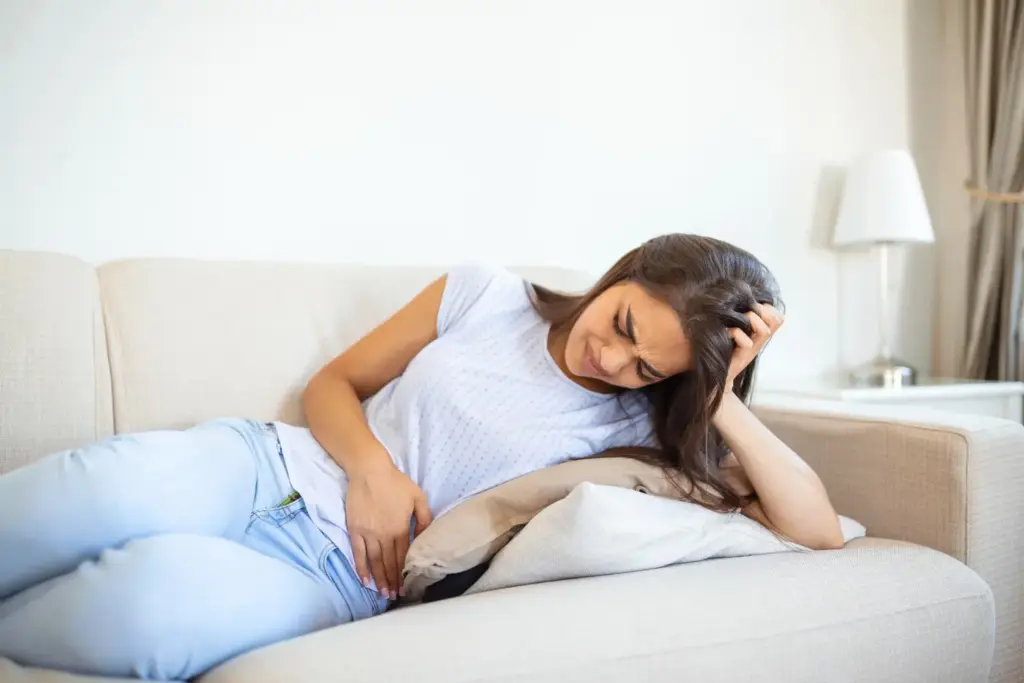
Challenges in passing stools often resolve spontaneously without requiring prescription treatment, but it’s crucial to contact your healthcare provider if you experience pain or apprehension.
Readily employable treatment options include:
- Lifestyle alterations, such as increased exercise, higher fiber intake, and enhanced water consumption,
- Allocating time for uninterrupted bowel movements.
- Attending to and heeding the urge to have a bowel movement.
- Laxatives may provide short-term symptom relief, but their use should be cautious and restricted to necessity, as some laxatives can have severe adverse effects.
- Maintaining a record of bowel movements, faecal characteristics, and diet to identify any potential issues.
Alternative Treatment Options for Challenges in Passing Stools
Should laxatives prove ineffective, impacted stools can be removed either manually or through surgery. If further symptoms appear, an abdominal imaging test, like a CT scan, MRI scan, or X-ray, might be performed to identify obstructions caused by a hidden illness. If another condition is identified, prescription medications or surgery may be necessary. Depending on test results and response to medical or surgical therapy, further treatment for challenges in passing stools may be warranted.
Complementary and Alternative Measures for Challenges in Passing Stools
Potential therapies to alleviate the symptoms of challenges in passing stools encompass acupuncture, massage, and herbal remedies. Consult your healthcare provider before attempting anything new, as some alternative therapies and treatments may have adverse effects.
Home Remedies for Challenges in Passing Stools
- Water: Dehydration can contribute to challenges in passing stools. Increasing your water intake, whether still or sparkling, can uplift your mood and alleviate constipation.
- Coffee: Considered a natural laxative, coffee stimulates gut muscles. Exercise caution with caffeine intake, as excessive amounts may lead to anxiety and restlessness.
- Yoghurt: Incorporating natural yoghurt and other probiotic-rich foods into your diet can enhance digestive health and provide relief from challenges in passing stools.




